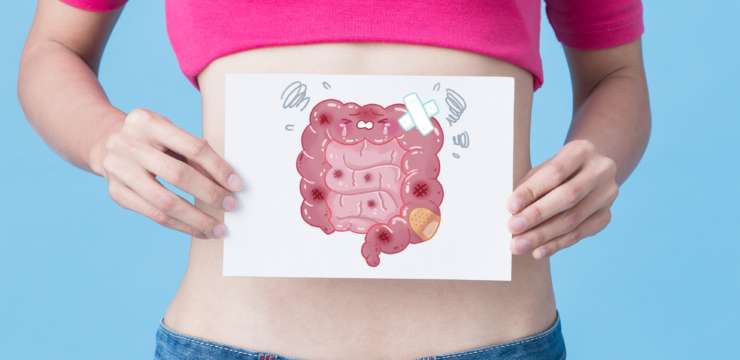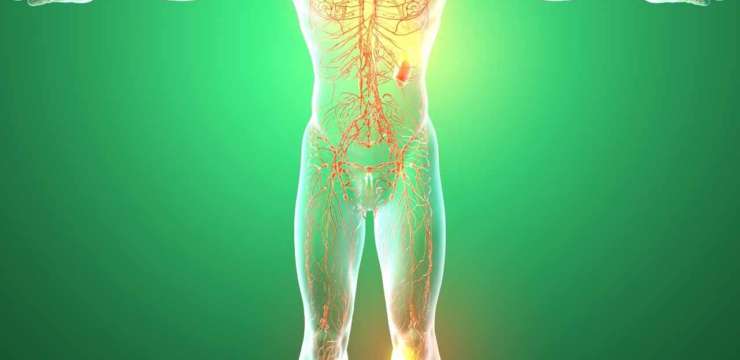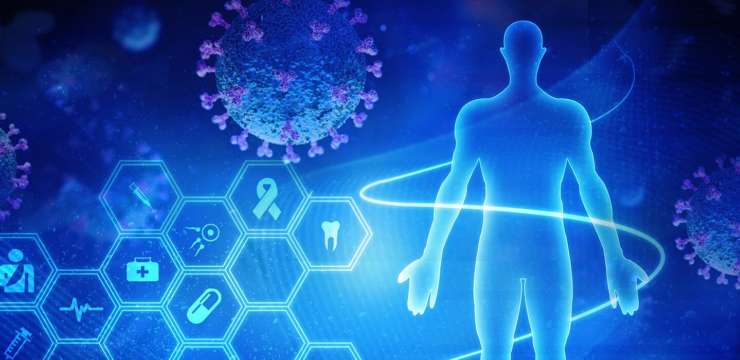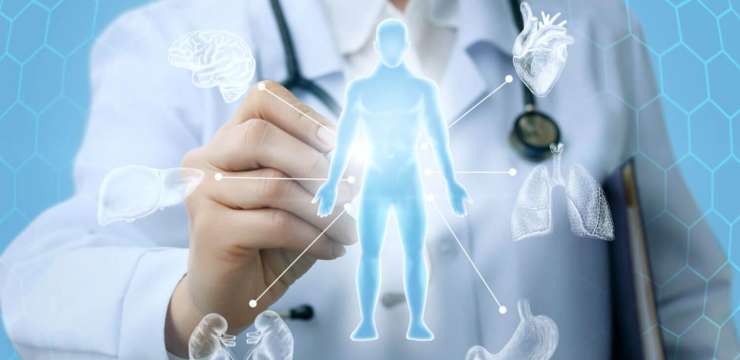In today’s podcast, Dr. Alex Jimenez, health coach Kenna Vaughn, chief editor Astrid Ornelas discuss about metabolic syndrome from a different point of view as…

Integrative Medicine Focus: Chiropractic Doctors and health coaches provide preventative care to help establish healthy habits in patients at all stages of their lives. For example, posture analysis can help identify posture habits that can greatly impact overall health, including energy levels, breathing, stress, and sleep. Chiropractic medicine is a form of integrative medicine that focuses on natural, non-invasive, evidence-informed practices of disease prevention and health promotion. Health coaching falls under integrative medicine because they look for the underlying source of the problem to treat the cause and not just the symptoms. This is done through lab work, nutritional assistance, detoxing, and all-natural supplements. Through a broad scope of assessment and treatment modalities such as manipulation, functional medicine, physical rehabilitation therapy, targeted nutritional and botanical care, acupuncture, and diet/lifestyle management, chiropractic medicine, and health coaching can effectively treat a wide range of conditions and improve overall health.

In today’s podcast, Dr. Alex Jimenez, health coach Kenna Vaughn, chief editor Astrid Ornelas discuss about metabolic syndrome from a different point of view as…

The current urge to treat proinflammatory conditions such as the Covid-19 induced cytokine storm has positioned mitochondrial function in the central stage of scientific research.…

The human body is more complex than scientists understand. Constantly, new research is being conducted and published that dives deeper into the bodies of multiple systems, uncovering new thought-provoking information. As of late, a lot of research is being conducted revolving around the human gut/gastrointestinal system. Originally thought, the gut was made to store and digest food. However, now we see that the gut is the real mastermind behind everyday bodily functions. The gut has now been linked to headaches, inflammation, and autoimmune disease.Â
BackgroundÂ
The digestive tract is one of the essential immune support organs. In fact, it is the immunological powerhouse that houses more than 80% of our antibody-producing cells. This means that our gut is the first line of defense when it comes to unwanted antigens. The gut is so powerful that researchers began to question and test its true abilities.Â
The GutÂ
The thought of the body having two brains sounds fictional, but scientists have begun referring to the gut as the body’s “second brain.†Researchers found that the brain in the human skull, working with the Central Nervous System (CNS) and the gut working with the Enteric Nervous System (ENS), can function separately. Although the two use the same “hardware,†the ENS can manage every aspect of digestion and is a nearly self-contained network of neurotransmitters and proteins.Â
Just throughout the small intestine, there are more than 100 million nerve cells. If you combine the number of nerve cells in the human GI tract, you will find that there are more nerves in the gut than there are in the human spine. This allows the ENS the capability to help with ION transport and GI blood flow.Â
Nearly every substance the body contains to control the brain can simultaneously be found in the gut. One of these substances being serotonin. 95% of serotonin is housed in the gut. A cell referred to as the enterochromaffin squirts serotonin into the wall of the gut, which then communicates with the nerve cells to get things moving. 90% of communication occurring is from the gut to the brain. When we take this into consideration with chiropractic care, we see how it is all connected. Chiropractic care focuses on the musculoskeletal system. The musculoskeletal system includes bones, muscles, tendons, ligaments, and soft tissue. All of these work together to support your body’s weight and help you move to perform daily functions. Injuries, disease, and aging can cause pain, stiffness, and other problems with movement and function. The muscular system is an organ system that consists of skeletal, smooth, and cardiac muscles. Smooth muscle is what lines the interior of the gut. As we know, the muscle systems in vertebrates are controlled through the nervous system. In fact, studies have shown that chiropractic care helps to reduce constipation, low back pain, and overall well-being. This study shows how the gut and digestive systems are directly connected to chiropractic care.
Inner Defense SystemÂ
As previously mentioned, the gut is our inner defense system. The mucosal layer that is associated with lymph node tissue is our primary source of immunological function. Gut-Associated Lymphoid Tissue (GALT) is the first to see foreign invaders and put up a fight. GALT produces two levels of defense, the most abundant being secretory IgA. Secretory IgA binds to antigens to provide protection against microbes.Â
It is important to note that secretory IgA in itself is NON-Inflammatory. However, when secretory IgA is fighting, it sends off signals for help from other immune cells, such as IgG and IgM, which do produce an inflammatory response.Â
Most individuals who have an autoimmune disease have worn-out IgAs. The goal of the gut and its defense system is to keep nutrients in while bouncing antigens off. In the case of autoimmune diseases, we see nutrients leaking out and antigens coming in.
InBody
In order to gain a better understanding of the health of our patients, we use the InBody 770. This allows us to assess health down to the orthomolecular level. With the use of the InBody, we can see phase angle, visceral fat (higher visceral fat has an association with type 2 diabetes, heart attack, and stroke), intracellular water, extracellular water (this is related to inflammation and swelling), lean muscle, and percent body fat. These numbers are critical when considering a health condition, especially if the extracellular water is high. We see a direct overlap in risk profiles with excess extracellular water to other inflammatory diseases and markers.Â
With more research shining a light on these, we see the true the gut and how it comes into play with autoimmune disease and inflammation.Â
[embedyt] www.youtube.com/watch?v=_6_sG_JV-0Q%5B/embedyt%5D
THE GUT IS GENUINELY SO POWERFUL AND HIGHLY OVERLOOKED. I CAN SPEAK FROM EXPERIENCE IN HAVING AN AUTOIMMUNE CONDITION WHERE NOT A SINGLE DOCTOR MENTIONED MY DIET OR MY GUT! NOW, KNOWING THIS INFORMATION AND BEING SURROUNDED BY PATIENTS WHO SUFFER FROM A DISEASE SIMILAR TO MINE, IT IS THE FIRST PLACE WE LOOK. THE GUT IS THE POWERHOUSE AND SHOULD BE TREATED AS SO. -KENNA VAUGHN, SENIOR HEALTH COACHÂ
ReferencesÂ
University, Functional Medicine and Ronald Grisanti , directors. Physiology of the Gut Associated Lymphoid Tissue, Enteric Nervous System and Mucosal Barrier. Functional Medicine University – The Leader in Online Training in Functional Diagnostic Medicine, 2010,.
Rédly M. (2001). The effects of chiropractic care on a patient with chronic constipation. The Journal of the Canadian Chiropractic Association, 45(3), 185–191.Â

Tissues
The human body is composed of many tissues. Each organ in the body can be broken down into tissues. Tissues are sorted based on their basic functions. These include:
Epithelial Tissue
Connective TissueÂ
Muscle Tissue
Nerves Tissue
Muscle Tissue
Out of these tissue types, the only tissue that contracts is muscle. Muscle tissue is further broken down into skeletal, cardiac, and smooth. These tissues are contracted when stimulated.Â
Connective Tissue
Connective tissue has three types as well. Connective tissue proper, fluid connective tissue, and supporting connective tissue. However, all three of these connective tissue types are made up of the same components. They all include specialized cells, protein fibers, and ground substances.Â
The differences between these tissues can be seen in what subdivides them. For example, the fluid connective tissue is subdivided into blood and lymph, whereas supporting connective tissue can be divided into cartilage and bone. Lastly, connective tissue proper is divided into loose connective tissue and dense connective tissue.Â
The substance that connective tissue is composed of is a clear fluid. This fluid has a similar consistency to maple syrup but is clear and odorless. Its primary function is to fill the spaces between the cells and surround all fibers.Â
Loose and Dense Connective TissueÂ
The loose connective tissue binds many structures together. Loose connective tissue allows mobility. Dense connective tissue forms collagen that is strong and flexible. These fibers form branching frameworks for the rest of the body. With the fibers being parallel to each other and very tightly packed, there are forces applied to the issue. Dense connective tissue is responsible for forming tendons, ligaments, capsules of organs, and fascia.Â
Fascia
Fascia varies as its function is primarily based on location. Fascia forms individual muscle fibers and the portions between muscles. These sheets can be thin or thick. Fascia is flexible and can stretch. Fascia lies under the skin, and deep fascia lies overs the muscles. Therefore, it is important that we move fascia frequently. Over time, if we are not stretching, the fascia will become tighter and tighter and eventually restrict movement. Fascia is in every cell, tissue, and organ.Â
When fascia is functioning properly, it has a positive impact on the autonomic and central nervous systems. However, when it is impacted by poor posture, inflammation, or trauma, the fascia can become distorted and apply abnormal pressure to areas of the body.Â
Phase AngleÂ
When focusing on the orthomolecular science of the body, we see how important tissue is. Fascia surrounds every cell, which can help determine cellular health. The phase angle is a snapshot at cellular health where we are able to see how healthy and strong an individual’s cells are. We want patients’ phase angles to be as close to a seven as possible. With a low phase angle (closer to 3 and 4), we see weakness in the cell. Below is a video that helps describes phase angle in more detail:Â
[embedyt] www.youtube.com/watch?v=WwbIsPNUYqs%5B/embedyt%5D
IT IS IMPORTANT TO HAVE HEALTHY CELLS AND HEALTHY TISSUE. WITH THE USE OF THE INBODY 770, WE ARE ABLE TO ASSESS PATIENTS’ MUSCLE MASS, BODY FAT MASS, AND PHASE ANGLE. THE INBODY IS NOT JUST FOR PATIENTS WHO ARE WORRIED ABOUT MUSCLE MASS BUT FOR EACH INDIVIDUAL WE SEE. IT PROVIDES IMPORTANT MARKERS EVERYONE SHOULD BE AWARE OF. -KENNA VAUGHN, ACSM-EP, SENIOR HEALTH COACH
References:Â
Grisanti, Ron, and Brad Hayes, DC  FDMT580G Myofascial Disruption Technique. Functional Medicine University, www.functionalmedicineuniversity.com/members/598.cfm. Â
Additional Online Links & Resources (Available 24/7)Â Â
Â
Online Appointments or Consultations:  https://bit.ly/Book-Online-Appointment Â
Â
Online Physical Injury / Accident Intake Form: https://bit.ly/Fill-Out-Your-Online-History Â
Â
Online Functional Medicine Assessment:Â https://bit.ly/functionmed

Iodine is a substance that can be found in salt and food. Due to contrary belief, iodine deficiency is very much alive, and over 96% of people are deficient. Hypothyroidism is very common, and the highest concentration of iodine is in the thyroid. Simply put, you can not make thyroid hormone without iodine. However, by treating the thyroid with iodine, the cysts also improve. It is essential to acknowledge that thyroid cancer is one of the fastest growing cancers.
Iodine
Iodine has many functions, but one of the most prevalent is to maintain the typical architecture of glandular tissue. These tissues include the thyroid gland, ovaries, uterus, breasts, prostate, and pancreas. Cysts are the first thing to appear on these tissues when iodine deficiency is present. Iodine used to be very present in food; however the National Health and Nutrition Examination Survey that is done by the United States every ten years that measures the vitamin, mineral, and toxicity level has shown that iodine levels declined over 50%. Throughout this time, when iodine levels are low, we have seen an increase in thyroid illness, hypothyroidism, and Hashimotos.
Thyroid
The thyroid gland is located in the neck. It is part of the endocrine system and is a butterfly-shaped gland that is responsible for hormone release. These hormones are associated with metabolism and the way the human body uses energy. The hormone released is Thyroxine (T4) and consists of four atoms of iodine. The other hormone released is triiodothyronine (T3) which contains three atoms of iodine. These hormones become biologically active and influence the cells and tissues throughout the body.
Common problems associated with T3 and T4 include too much or too little production. Too much is referred to as hyperthyroidism. Hyperthyroidism symptoms include weight loss, heat intolerance, anxiety, and sore or gritty eyes. Too little is known as hypothyroidism. Those impacted by hypothyroidism suffer from tiredness, feeling cold, weight gain, poor concentration, and depression. Hypothyroidism is a more common disorder.
Phase Angle
Phase angle is an overall snapshot of cellular health. The higher the phase angle, the more robust an individual’s cellular membrane is, indicating they are able to fight off inflammation and infection better. Those with a poor phase angle tend to have overall poor health and are more susceptible to inflammation, metabolic syndrome, and infections.
Phase angle can be impacted by thyroid disorders if the hormones are not balanced. For example, hypothyroidism causes weight gain, depression, and tiredness. These three combined can lower phase angle. The more weight an individual carries, the more cortisol and fat cells they create. These cells breed inflammation, reducing phase angle. Depression and tiredness make it extremely hard for individuals to exercise and want to live a healthy lifestyle. The reduction of exercise and increase in unhealthy food causes more weight gain, inflammation and can lead to joint pain if left untreated.
We monitor phase angle and inflammation with the InBody 770. This machine uses bioelectric signals to create a report showing an individual’s body composition. The report shows crucial numbers such as intracellular water, extracellular water, percent body fat, lean muscle mass, and more.
[embedyt] www.youtube.com/watch?v=WwbIsPNUYqs%5B/embedyt%5D
THE HUMAN BODY IS AN EXTREMELY DELICATE SYSTEM THAT CAN BE THROWN OFF WITH THE SMALLEST CHANGE. IODINE DEFICIENCIES ARE PREVALENT, AS WELL AS THYROID PROBLEMS. DIETARY CHANGES, EXERCISE, AND POSSIBLE SUPPLEMENTATION (AFTER SPEAKING WITH YOUR HEALTHCARE PROVIDER) COULD HELP INDIVIDUALS WHO SUFFER FROM LOW PHASE ANGLE AND THYROID ISSUES. -KENNA VAUGHN, ACSM-CEP, SENIOR HEALTH COACH
References:Â
Brownstein, David. “Iodine: The Most Misunderstood Nutrient.†Functional Medicine University. 18 May 2021.Â
Triggiani V, Tafaro E, Giagulli VA, Sabbà C, Resta F, Licchelli B, Guastamacchia E. Role of iodine, selenium and other micronutrients in thyroid function and disorders. Endocr Metab Immune Disord Drug Targets. 2009 Sep;9(3):277-94. doi: 10.2174/187153009789044392. Epub 2009 Sep 1. PMID: 19594417
Additional Online Links & Resources (Available 24/7)


Â
Online Appointments or Consultations:  https://bit.ly/Book-Online-Appointment


Â
Online Physical Injury / Accident Intake Form: bit.ly/Fill-Out-Your-Online-History


Â
Online Functional Medicine Assessment: bit.ly/functionmed
Disclaimer
Â
The information herein is not intended to replace a one-on-one relationship with a qualified health care professional, licensed physician, and is not medical advice. We encourage you to make your own health care decisions based on your research and partnership with a qualified health care professional. Our information scope is limited to chiropractic, musculoskeletal, physical medicines, wellness, sensitive health issues, functional medicine articles, topics, and discussions. We provide and present clinical collaboration with specialists from a wide array of disciplines. Each specialist is governed by their professional scope of practice and their jurisdiction of licensure. We use functional health & wellness protocols to treat and support care for the musculoskeletal system’s injuries or disorders. Our videos, posts, topics, subjects, and insights cover clinical matters, issues, and topics that relate and support, directly or indirectly, our clinical scope of practice.* Our office has made a reasonable attempt to provide supportive citations and has identified the relevant research study or studies supporting our posts. We provide copies of supporting research studies available to regulatory boards and the public upon request. We understand that we cover matters that require an additional explanation of how it may assist in a particular care plan or treatment protocol; therefore, to further discuss the subject matter above, please feel free to ask Dr. Alex Jimenez or contact us at 915-850-0900.  Read More…
Dr. Alex Jimenez DC, MSACP, CCST, IFMCP*, CIFM*, CTG*
email: coach@elpasofunctionalmedicine.com
phone: 915-850-0900
Licensed in Texas & New Mexico

Phase Angle is a helpful tool for health practitioners to identify the cell membrane’s integrity and dysfunction. In recent years, studies show an increase in patients with Metabolic Syndrome. Aside from the other health issues that metabolic syndrome induces, it increases oxidative stress and inflammation throughout the body. Oxidative stress promotes cellular damage.Â
Metabolic Syndrome
Metabolic Syndrome is a condition in which multiple health conditions occur together. Metabolic Syndrome increases an individual’s risk for heart disease, stroke, and type 2 diabetes. The conditions that make up metabolic syndrome include:Â
Increased blood pressure (>130/85mmHg)
High fasting blood glucose (>110mg/dL)
Excess body weight (men >40in, women >35in)
Low HDL (men <40mg/dL, women <50mg/dL)
Hypertriglyceridemia (>150mg/dL)Â
Although many individuals experience all of the conditions listed above, you only need to have three out of the five in order to be diagnosed with metabolic syndrome. Metabolic syndrome is often correlated with age, inflammation, obesity, and diabetes. The risk of developing metabolic syndrome increases the older you get and your rate of physical activity. If you become less active, your risk of developing metabolic syndrome will rise.Â
[embedyt] www.youtube.com/watch?v=deH1uzXA1ik%5B/embedyt%5DÂ
Phase AngleÂ
Phase angle is how health care professionals can monitor the integrity of cellular membranes. If the phase angle begins to decline, it has been linked directly to a decline in overall health. Similar to if phase angle increases, overall health is increasing. The integrity of cellular membranes is essential as cell survival depends on solid membranes. When the cellular wall is weak, it can collapse. From here, it is difficult for the body to take up the proper nutrients it needs. Additionally, with a weak cellular membrane, the cell is left with little to no protection from outside invaders.Â
We monitor a patient’s phase angle with the use of the InBody 770. This advanced machine allows us to not only track the phase angle of our patients but many other areas of their health as well, including but not limited to intracellular and extracellular water.Â
[embedyt] www.youtube.com/watch?v=WwbIsPNUYqs%5B/embedyt%5DÂ
Increasing Phase Angle & Decreasing Metabolic Syndrome
There are simple steps individuals can take every day to begin to improve their phase angle as well as decrease their risk of developing metabolic syndrome. These lifestyle changes include:Â
Exercising for a minimum of 30 minutes a day (as simple as walking)Â
Adding in a vegetable and fruit to every meal or snackÂ
Getting adequate protein and whole grains
Limiting saturated fat and salt intakeÂ
Not smokingÂ
Maintaining a healthy weightÂ
Adequate sleep for proper cellular healingÂ
IN THE RECENT YEAR, THERE HAVE BEEN MORE PATIENTS WHO ARE DIAGNOSED WITH METABOLIC SYNDROME. WHEN CAUGHT EARLY, THERE ARE MULTIPLE WAYS TO COMBAT THIS DIAGNOSIS HOLISTICALLY AND NATURALLY. WITH THE ABILITY TO CREATE PERSONALIZED TREATMENT PLANS INVOLVING EXERCISE, DIET, AND NATURAL SUPPLEMENTS, WE SEE AN INCREASE IN PATIENT’S OVERALL PHASE ANGLE. -KENNA VAUGHN, ACSM-EP, SENIOR HEALTH COACH
References:Â
de Luis DA, Aller R, Romero E, Dueñas A, Perez Castrillon JL. Relation of phase angle tertiles with blood adipocytokines levels, insulin resistance and cardiovascular risk factors in obese women patients. Eur Rev Med Pharmacol Sci. 2010 Jun;14(6):521-6. PMID: 20712259.Â
Huang PL. A comprehensive definition for metabolic syndrome. Dis Model Mech. 2009 May-Jun;2(5-6):231-7. doi: 10.1242/dmm.001180. PMID: 19407331; PMCID: PMC2675814. Â
Additional Online Links & Resources (Available 24/7)


Â
Online Appointments or Consultations:  https://bit.ly/Book-Online-Appointment


Â
Online Physical Injury / Accident Intake Form: bit.ly/Fill-Out-Your-Online-History


Â
Online Functional Medicine Assessment: bit.ly/functionmed
Â
Disclaimer
Â
The information herein is not intended to replace a one-on-one relationship with a qualified health care professional, licensed physician, and is not medical advice. We encourage you to make your own health care decisions based on your research and partnership with a qualified health care professional. Our information scope is limited to chiropractic, musculoskeletal, physical medicines, wellness, sensitive health issues, functional medicine articles, topics, and discussions. We provide and present clinical collaboration with specialists from a wide array of disciplines. Each specialist is governed by their professional scope of practice and their jurisdiction of licensure. We use functional health & wellness protocols to treat and support care for the musculoskeletal system’s injuries or disorders. Our videos, posts, topics, subjects, and insights cover clinical matters, issues, and topics that relate and support, directly or indirectly, our clinical scope of practice.* Our office has made a reasonable attempt to provide supportive citations and has identified the relevant research study or studies supporting our posts. We provide copies of supporting research studies available to regulatory boards and the public upon request. We understand that we cover matters that require an additional explanation of how it may assist in a particular care plan or treatment protocol; therefore, to further discuss the subject matter above, please feel free to ask Dr. Alex Jimenez or contact us at 915-850-0900.  Read More…
Dr. Alex Jimenez DC, MSACP, CCST, IFMCP*, CIFM*, CTG*
email: coach@elpasofunctionalmedicine.com
phone: 915-850-0900
Licensed in Texas & New Mexico

Anthropometric Assessment Anthropometric measurement plays a principal role in the patient’s health assessment. Anthropometric measures are an essential part of our clinical findings; body composition…

It was first isolated from the Bovine Pineal gland in 1958. Nevertheless, in humans, it is the main hormone secreted by the pineal gland. Melatonin…

Inflammation is a necessary response, and it can initiate host defense response and repair damaged tissue. However, an uncontrolled inflammatory signal can cause prolonged inflammatory…

Part of natural healing and using functional medicine as an approach to discover the underlying reasons for health conditions involves evaluating possible causes. To find what is causing a patient’s hypertension, functional practitioners need to consider:
Magnesium deficiencyÂ
Depressed testosterone
Bacterial infections
Viral infections
Mercury toxic exposure
Detoxification compromise
Taurine deficiencyÂ
Fatty acid imbalanceÂ
Kidney dysfunctionÂ
Antioxidant insufficiencyÂ

People are exposed to toxins, such as pesticides and air pollutants in food and the environment, on a regular basis. Meanwhile, other toxins are produced…

The body is capable of eliminating harmful components generated by the production of toxic metabolites and the ingestion of toxic substances. When these overwhelm the…

Most detox diets are normally short-term diet and lifestyle modifications made to help eliminate toxins from your body. A common detox diet may include a…

Presenting Truide Torres Jimenez. ( Clinic Director: Injury Medical Clinic PA & Patient Relations Advocate & WAY More) Truide has been working for the past…

Aging is a natural part of life and it can’t be stopped. Or at least, that’s what we used to think. Researchers at Intervene Immune,…

Research studies have demonstrated the fundamental role of nutrition in health and longevity. The standard American diet, which is generally high in fat and sugar,…

Athletic success has a lot to do with our coaches, internal motivation, and time dedicated to the sport. However, it also has to do with our genetics. The athletic phenotype is complex and includes a variety of many different environmental factors. Genetic testing gives coaches and parents the ability to personalize training sessions, focusing on strengths and weaknesses. This allows them to truly have sport-specific training that uses their genetic potential to their advantage to optimize success. We use DNA Sport from DNA Life.